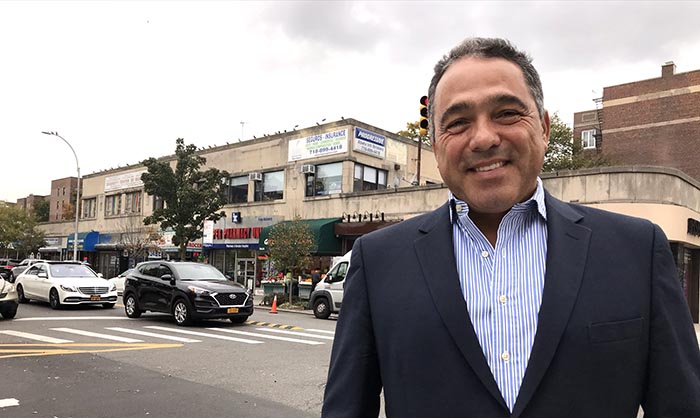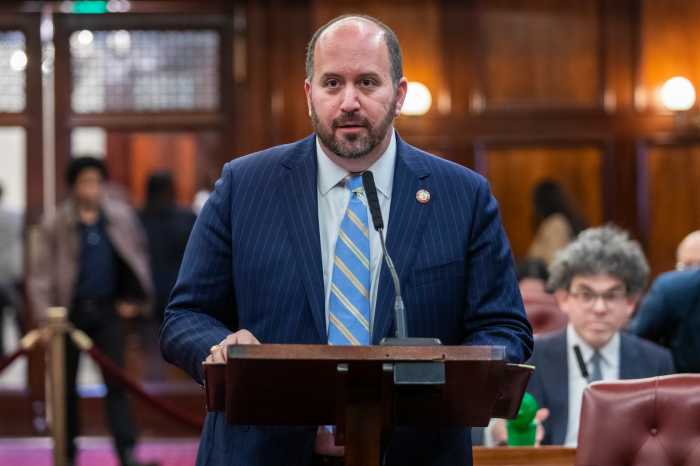August marks National Black Business Month, a time to celebrate the resilience, contributions, and success of Black entrepreneurs. As President Calvin Coolidge once said, “the chief business of the American people is business.” This is as true today as it was nearly a century ago — and it holds for every American, especially the Black community. Black-owned business creation is surging. From 2017 to 2022, the number of businesses owned by a Black entrepreneur increased by nearly 57%. During those years, at least half of the new businesses were Black-owned. The US Census estimates that Black entrepreneurs own 3.5 million businesses with an annual payroll of $40.5 billion.
Technology is fueling this boom in entrepreneurship and tearing down barriers. That’s especially true of artificial intelligence. But to fully unlock AI’s economic potential, policymakers need to ensure that business owners and the workforce of the future are properly equipped to succeed. Albany and Washington should focus on investing in education and workforce training –– and resisting legislation and regulations that stifle rather than support our local innovators.
The fact is, AI is rapidly becoming an indispensable tool for small businesses, especially those with limited resources. It is helping Black entrepreneurs launch and scale businesses with little startup capital, while allowing them to provide better services, market effectively, and compete against larger corporations.
According to a report from the Initiative for a Competitive Inner City, nearly 89% of small business owners are already using AI tools in their day-to-day operations. This number is expected to rise, as small businesses continue to embrace AI to enhance productivity, improve decision-making, and expand their capabilities.
As AI adoption accelerates, it’s crucial that we ensure AI provides opportunities for all business owners and employees. Jobs for the Future reports that students and employees in the Black community are early adopters and influential users of AI, but they still face limited access to training, social networks, and professional opportunities. This is where organizations like the Long Island African American Chamber of Commerce become invaluable resources.
Governor Kathy Hochul’s commitment to investing in AI programs at CUNY and SUNY schools is a step in the right direction. By building robust research programs and fostering a pipeline of skilled workers and innovators, New York can continue to build on its legacy as a world-leading innovation ecosystem, second only to Silicon Valley. However, legislation like the recently passed RAISE Act threatens to undermine this momentum by creating murky rules around academic research and chasing innovators to states with less hostile regulatory climates.
We all can agree that responsible AI development is critical, especially as we look to address the concerns of biases built into large language models. However, the RAISE Act would impose costly legal risks on the developers of free, open-source AI models. These are the models that local startup founders and small business owners rely on for applications that enhance efficiency, improve customer service, and scale their operations.
But if the top developers take on expensive new liabilities, why would they continue offering open-source models for our local problem solvers to build on? The fact is, the RAISE Act threatens to undermine access to these powerful tools, jeopardizing the ability of small businesses, particularly those in underserved communities who are finding success with digital platforms, to fully benefit from AI’s potential.
As we honor National Black Business Month, let’s commit to empowering our friends and neighbors who set out to start their own ventures. We must ensure that Black business owners have access to the tools, resources, and opportunities needed to thrive in today’s economy. Business and government must work together to create policies that promote innovation, support AI adoption, and provide our risk takers and home-grown innovators with the freedom and flexibility to succeed. Our communities are counting on us to get this right.
Phil Andrews is president of the Long Island African American Chamber of Commerce and founding president of the New York City Minority Small Business Chamber of Commerce.










